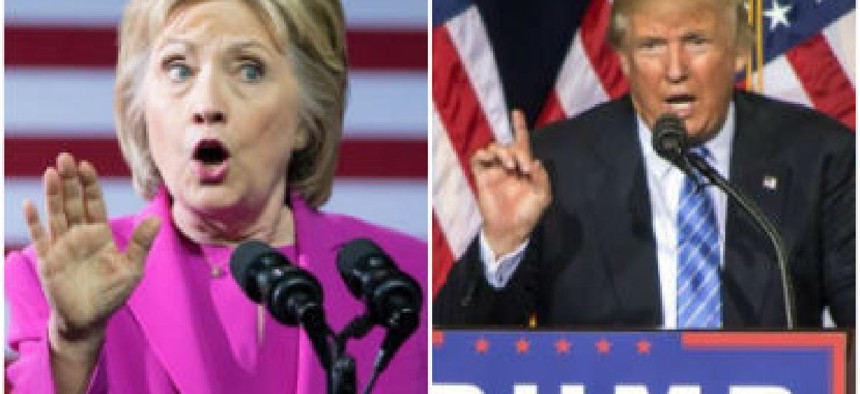Where do Clinton and Trump stand on tech?

A new report from ITIF shows that Hillary Clinton has articulated more detailed policy positions on cybersecurity and innovation than has Republican rival Donald Trump.

The Information Technology and Innovation Foundation has found some sharp contrasts in Hillary Clinton's and Donald Trump's attitudes toward technology and innnovation policies.
With the presidential election fast approaching, technology-minded groups are delving into the agendas put forth by the presidential candidates. According to a report by the Information Technology and Innovation Foundation, Democrat Hillary Clinton has been more specific in outlining her positions than her Republican counterpart Donald Trump.
Put more simply, Clinton has a policy while Trump, by and large, does not.
In June, Clinton released a technology agenda that is largely directed at ways the government could partner with the commercial sector. It also focuses on expanding innovation plans initiated by the Obama administration, including U.S. Digital Service programs.
Additionally, Clinton supports technology as a tool to improve and streamline federal processes, such as increasing the authority of federal chief information security officers and modernizing federal IT systems.
On the topic of regulation, Clinton is supportive of net neutrality, privacy safeguards and antitrust enforcement. She has also specified a plan to appoint a chief innovation officer at the Office of Management and Budget who would be in charge of "reducing some federal regulatory barriers."
On the debit side of the technology ledger, Clinton has been widely criticized for her use of a private email server to conduct government business while she was secretary of State.
By contrast, the ITIF report termed the often outspoken Republican nominee as "quiet" on issues regarding tech and innovation.
"The most distinguishing feature of the Trump campaign agenda in this area has been its notable lack of articulated policy positions," the report states.
Although Trump has focused on cutting taxes and federal regulations, which would affect innovation, he is not on record about policies that directly address innovation or technology.
His references to cybersecurity have largely been made in the context of national security. He has criticized the country's "obsolete" cyber capabilities, telling the New York Times in March that "cyber has to be in our thought process."
Trump has also promised to strengthen protections against Chinese hackers and "swift, robust and unequivocal" responses to international hacking efforts.
One e-government topic Trump has directly addressed is the need to modernize the Department of Veterans Affairs' health care system.
In previous elections, the report states, "both parties' nominees generally articulated positions on nearly all of the policy areas ITIF identified as key priorities for promoting innovation."
NEXT STORY: States name members of election security group


